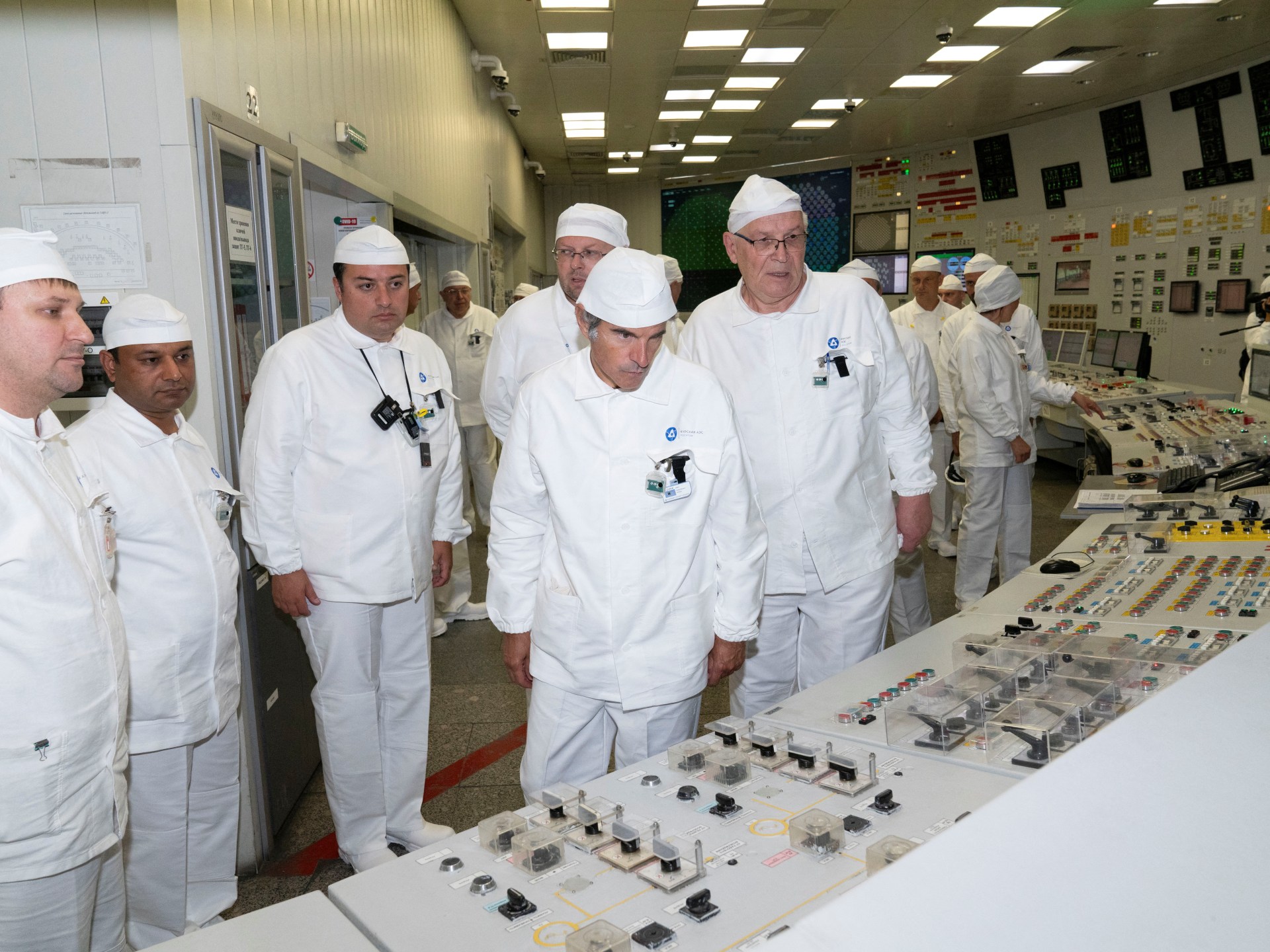
IAEA head Rafael Grossi says Kursk nuclear plant’s proximity to the fighting is ‘extremely serious’.
A nuclear plant located in western Russia where fighting is raging between Russian and Ukrainian forces is vulnerable to a serious accident because it lacks a protective dome that could shield it from missiles, drones and artillery, the head of the United Nations nuclear watchdog says.
Rafael Grossi, director general at the International Atomic Energy Agency (IAEA), on Tuesday visited the Kursk Nuclear Power Plant outside the town of Kurchatov in Russia’s Kursk region, where Ukrainian forces broke across the border three weeks ago and Russia is battling to eject them.
“The danger or possibility of a nuclear accident has emerged near here,” Grossi told reporters.

Grossi said the RBMK-type facility – the same model as the Chornobyl plant in Ukraine, which witnessed the world’s worst civilian nuclear disaster in 1986 – lacks the containment dome and protective structure that is typical of modern nuclear power plants.
“This means that the core of the reactor containing nuclear material is protected just by a normal roof. This makes it extremely exposed and fragile, for example, to an artillery impact or a drone or a missile,” he said.
“So this is why we believe that a nuclear power plant of this type so close to a point of contact or a military front is an extremely serious fact that we take very seriously.”

Russian President Vladimir Putin accused Ukraine last week of trying to attack the Kursk plant. Ukraine has yet to respond to the accusations that it attacked the facility.
“I was informed about the impact of drones. I was shown some of the remnants of those and signs of the impact they had,” Grossi said without saying who was responsible.
Grossi said the purpose of his visit was to draw the world’s attention to the situation and to say: “Basically, never, ever must or should a nuclear power plant be attacked in any way.”
The IAEA has repeatedly warned of the dangers of fighting around nuclear plants since Russia’s full-scale military offensive in Ukraine began in February 2022.
‘A dangerous situation’
Defence analyst Pavel Felgenhauer told Al Jazeera the continued attacks near the Kursk nuclear plant could change the course of the war.
“The front lines right now are … far off, tens of kilometres from the Kursk Nuclear Power Plant. It doesn’t seem that the Ukrainians are trying to reach it or attack it, but of course, … it’s a dangerous situation,” he said.
“The situation in the northern front in Kursk, in [the neighbouring region of] Belgorod is not fully in Russia’s favour. The Ukrainians have the initiative there. Russia has the initiative in the south [of Ukraine] in Donbas, so both sides are going for each other,” he said.
“There is still a possibility that the Ukrainians may try to expand their Kursk bridgehead and go with forces into Belgorod over the border.”
Al Jazeera’s Alex Gatopoulos, reporting from Kyiv, said the Russians know they have to seize Pokrovsk in the Donbas region because it is the “absolute prize” in Donetsk Oblast, part of which pro-Moscow separatists have controlled since 2014.
“Whoever controls it, controls Donetsk itself. It’s a supply route, it’s a logistics hub, it’s a rail hub and it’s vital for both Russians to take it and for Ukraine to defend it,” he said.
“Russians are bringing reinforcements to bolster this advance because there’s a limited time that advances, offensives can go on.”










